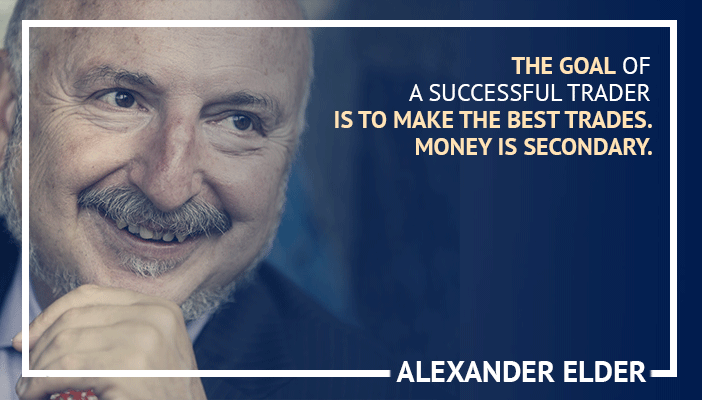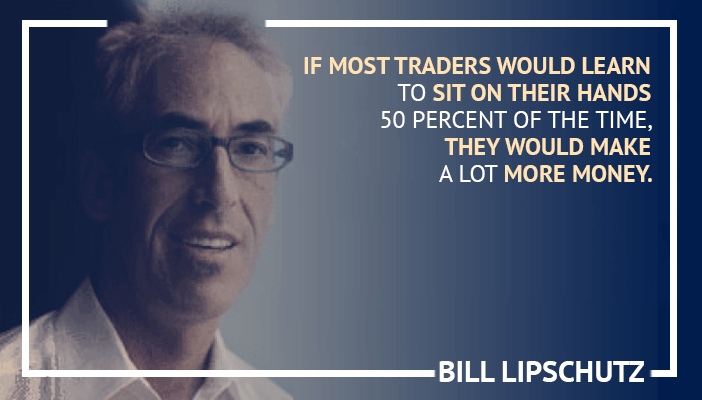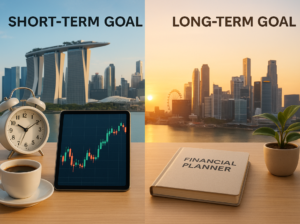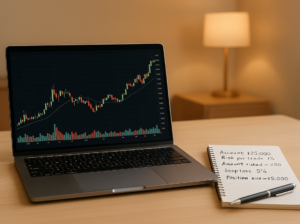If you want your trading profits to soar upwards gracefully, first you need to paddle furiously before the take off.
Here are the 7 sacred rules of successful trading to help your paddling.
#1 Trading Is A Business
The mindset of a successful trader, would be to treat trading like a business.
Be it a full-time or part-time business, this attitude brings the appropriate level of commitment to the growth of the business, even if it doesn’t bring immediate or stable income.
With this mindset, you will be able to keep finding ways to grow your business.
Things like new avenues to do business, increasing efficiency, maximizing profits and minimizing costs.
“A peak performance trader is totally committed to being the best and doing whatever it takes to be the best. He feels totally responsible for whatever happens and thus can learn from mistakes. These people typically have a working business plan for trading because they treat trading as a business.” – Van K. Tharp
#2 Always Use A Trading Plan
This is an indispensable part of successful trading.
A trading plan is a set of written rules that specifies a trader’s entry, exit and risk management criteria for every trade.
Make sure to test your trading plan.
There are a couple of ways to do this, either run through the charts manually to see how your trading plan worked in the past.
Or find a way to accurately code your trading plan and test it with a back testing software.
I strongly encourage eyeballing the charts, because this trains your eyes to find the setup, and the supercomputer in our skulls might pick up on a characteristic or two which makes the setup work or even work better.
This also helps build experience in “trading” your trading plan, which translates to confidence in order to stick to the trading plan.
“The goal of a successful trader is to make the best trades. Money is secondary.”
– Alexander Elder
#3 Become A Student Of The Markets
This is going to be a lifelong learning experience.
The markets will evolve over time, you have to learn to adapt to the changing landscape if you want any longevity in this business.
Even if you are executing based on a consistent methodology, there will be distinctions which separate the great setups from the bad setups.
It will take a long time for you to identify these distinctions, understand them, and knowing where they are best applied.
“Do not be embarrassed by your failures, learn from them and start again.” – Richard Branson
#4 Leverage On Technology
There’s no reason for you not to, technology has permeated every aspect of our lives, the financial markets as well.
Even if you are a discretionary trader, you need to get every edge you can, to boost up your business.
There are so many ways that technology can contribute to successful trading.
Be it in terms of back testing a strategy idea, or building a better scanner for you to find market opportunities, a robot to help you manage trades while you sleep, or if you can reduce your trading method into an algorithm which trades for you, there are many ways in which technology can help you as a trader.
While I won’t go so far as to say that we can wholly trade full-time from from our hand phones, but we certainly can monitor our positions while we’re on the go with them.
And we certainly can trade from a laptop anywhere in the world with a fast stable internet. 😉
“You can be free. You can live and work anywhere in the world. You can be independent from routine and not answer to anybody.” – Alexander Elder
#5 Protect Your Trading Capital
While this might seem to be a lesser consideration, since you should only trade with money you can afford to lose.
It doesn’t mean you should have to go through the ordeal of losing your trading capital.
(Your trading capital should be money, that if lost, would not greatly impact your current lifestyle.)
This will allow you to the have the peace of mind to make objective trading decisions, without being subject to fear or greed triggered by risking your trading capital.
This is also not the same as never having a losing trade.
Losing trades are part of the business, you can never avoid them.
But you should make an effort to ensure that these losing trades don’t cause lasting damage to your trading capital.
So make sure you’re risking the right amount per trade, for yourself and your trading capital.
“I’m always thinking about losing money as opposed to making money. Don’t focus on making money, focus on protecting what you have” – Paul Tudor Jones
#6 Know When NOT To Trade
There are 2 reasons NOT to trade:
a) An Ineffective Trading Plan
This means that the trading plan you have is not suitable for generating profits in the current market environment.
It could be due to changes in market volatility or market trend.
Whatever the reason, if your trading plan is not generating profit in the current environment, take time to review your trades and re-evaluate your plan, determine if it’s just due to a temporary volatility change in the market or likely a permanent change in the markets.
It might require a few simple tweaks to become profitable again, it could require an overhaul, or simply waiting for a suitable market environment to return then resume trading again.
Either way, it’s just part of the business.
Click here to learn more about trading so you know when not to trade!
b) An Ineffective Trader
This refers to a trader who is unable to follow the trading plan.
Be it due to extenuating circumstances or emotional turmoil or just ill-discipline, all these can cause a trader to be unable to follow his trading plan. The trader should stop trading until the external stresses have been resolved, and he takes care of his internal challenges.
When the trader is once again able to follow a trading plan, then continue the trading business.
“If most traders would learn to sit on their hands 50 percent of the time, they would make a lot more money.” – Bill Lipschutz
#7 Keep Trading In Perspective
Keep the bigger picture context in mind when trading.
Put what you see in perspective with the broad market, or the fundamentals, or even the current affairs influencing your market.
Know also that losing trades are necessary for you to have winning trades.
Having realistic expectations is a very big part of this as well. Once you understand this, you will be less emotionally affected by trading wins and losses.
Winning and losing days won’t affect your moods so you can focus on other aspects of your life. Yes, there is more to life than just successful trading. Remember that.
“You will never find fulfillment trading the markets if you don’t learn to appreciate and be satisfied with what you already have.” – Yvan Byeajee
If you’d like to find out more about systematic trading with a solid trading plan, click the banner below.
















